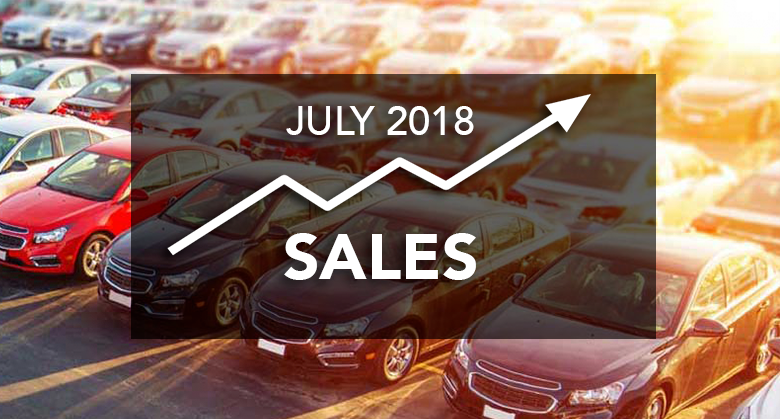Many Dealerships See Growth in July
As we pour over the sales data for July, one thing becomes apparent, that nothing is apparent. Although some cities are down in sales such as San Fran and San Jose (which overlaps with San Jose), cities like LA, NY, Miami, Dallas, Houston, Denver, SD, Chicago, Beantown, Philly, even the Motor City are up over July of last year. Somehow, high interest rates, off-lease inventory, and other factors had little effect on the market in July. The reverse was true for May and June when sales were definitely in the tank. I was noticing a huge fall off of new car sales from calendar months of Spring and early Summer 2017 with the same calendar months of 2018 until this July. I fully expected the downward trend to continue.
Although I don’t have numbers for a few brands including Ford, July looked pretty good for some brands including Chevrolet in the DFW with sales up nearly 24% in July 2018 over July of 2017. Lexus always does well in Texas and saw a nice 32.5% lift in sales. Chicago Chevy dealers also did well on average with Phillips and Ray Chevrolet Dealers leading the way as the brand increased sales almost 4% in that area. Not surprisingly, 32% more folks are garaging Jeeps than in July of 2017 around the Chicago area as well. I like to focus more on micro-trends in data as indicators of market shifts. Overall new car sales may be slightly up for the year so perhaps the bellicose predictions of automotive apocalypse may have been be a bit apocryphal?
How can new car sales even be treading water with so many economic pressures applying gravity to the industry? Higher interest rates, all-time highs in delinquent payments, sub-prime borrowers boxed out of new car sales, and off-lease inventory glutting simply can’t match the optimism generated by a healthy economy and tax breaks for the middle class. It’s the middle class that garages Chevy and Toyota, Ford and Honda, CDJR and Subaru, and although there will be no new car sales records held any higher than at the dealer level, the economy is holding it’s own keeping the industry afloat. My real concern is that as soon as the economy takes a dip, the aforementioned weight of economic factors will be too much to maintain the gleam of hope that we all still have. Of course, I can be wrong. Part of the reason sales in SUVs and crossovers are still healthy is because oil prices have stabilized. As long as oil prices stay under $80, gas prices will not play a factor in curbing new car sales. The inaccurate prediction of gas prices exceeding tolerable levels seems to have swayed a few too many industry experts into forecasting so much gloom.
If I’m a new car dealer, I realize that things can go south at any time. I’m keeping my operations tight, my sales team inspired and personable, and I’m damn well making sure my vendors are giving me a decent, measurable ROI. If I can hang on until Q1 of 2019 when the Trump tax breaks get even bigger, I’m feeling pretty lucky right about now.


